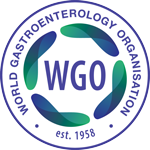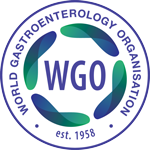Diverticular Disease, Diverticulitis and Colorectal Cancer
Review by Prof. Eamonn Quigley (USA)
Study Summaries
While the relationship between diverticular disease (diverticulosis) and colorectal cancer (CRC) has been the subject of much debate, it has long been believed that diverticulitis is a risk factor for CRC and colonoscopy advised once the acute episode has resolved. Two recent studies in the same issue of Clinical Gastroenterology and Hepatology address somewhat different aspects of the relationships between diverticular disease, diverticulitis and CRC.
The first study addressed the relationship between diverticular disease, in general, and cancer using the Danish national health database. Patients were followed for up to 20 years beginning one year after the diagnosis of diverticular disease with the first occurrence of cancer being the primary endpoint. Surprisingly, among the over 200,000 patients with diverticular disease that they followed, the incidence rates of several cancers (lung and kidney most notably) were increased while that of CRC was actually reduced. They attributed the increased risk for non-CRC cancers to shared risk factors and cigarette smoking, in particular, and the lower rates for CRC to the protective effects of colonoscopy and polypectomy with colonoscopy being the most common source of the diagnosis of diverticular disease, in the first instance.
The second study took a different approach and in a cross-sectional study based on the Gastrointestinal Quality Improvement Consortium (GIQuIC) in the United States compared the prevalence of CRC among over 91,000 individuals undergoing colonoscopy for diverticulitis with over four million undergoing a screening colonoscopy. Compared with screening, the risk of CRC (and advanced colorectal neoplasia, in general) was lower among those with diverticulitis (odds ratio 0.84) except for those with a history of complicated diverticulitis (defined as an abscess or perforation) where risk was increased (odds ratio 3.57).
Commentary
These studies largely concur with prior literature on these topics suggesting that, first, diverticular disease, in general, is not associated with an increased risk for CRC and, second, that an increased risk for CRC among those who have suffered an episode of diverticulitis is restricted to those who had a complicated disease course, assuming that they are current with CRC screening protocols. There are limitations to both studies. The Danish study could not differentiate between the various clinical presentations of diverticular disease and included symptomatic and asymptomatic individuals as well as those with diverticulitis. Instead, they used treatment (i.e. surgery, in-patient or outpatient) as a surrogate for severity and did note a trend toward more cancers in the surgical and in-patient-treated groups but neither featured an excess of CRC. While the second study provides results that are very much in keeping with current literature, it does not reveal how CRC and complicated diverticulitis are linked. It is also important to note that the US study was carried out in the context of widespread availability and application of colonoscopy for CRC screening.
Citation
Troelsen FS, Farkas DK, Erichsen R, et al. Risk of cancer in patients with diverticular disease: a population-based cohort study. Clin Gastroenterol Hepatol 2024;22:2107-16.
Redd WD, Holub JL, Nichols HB, et al. Follow-up colonoscopy for detection of missed colorectal cancer after diverticulitis. Clin Gastroenterol Hepatol 2024;22:2125-33.
View past News You Can Use commentaries

